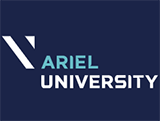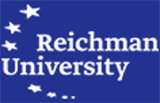Introduction to the Hebrew University of Jerusalem
Overview
The Hebrew University of Jerusalem (Hebrew University for short) is the first university of the Jewish nation and a symbol of the cultural renaissance of the Jewish nation in the birthplace of its ancestors. The Hebrew University was founded in 1918 and completed in 1925. As the highest institution of learning in Israel, the Hebrew University ranks among the top in many global university rankings and is known as the "Harvard of the Middle East". The Hebrew University is not only a beacon of Jewish culture and scholarship, but also a major center of the international academic community2.
Founding time
The preparation for the construction of the Hebrew University began in the late 19th century, specifically in 1918, and was officially completed and began to enroll students in 19252.
School strength
The Hebrew University is a research university with strong scientific research capabilities and rich academic resources. According to the 2024 Times Higher Education World University Rankings, the Hebrew University ranks 64th in the world and ranks first among Israeli universities4. The Hebrew University enjoys a high reputation in many disciplines, especially in the humanities, social sciences, natural sciences and medicine.
Institutional Nature
The Hebrew University is a public university affiliated to the Israeli Ministry of Education and a member of the Global University and Institute Alliance. The Hebrew University is committed to contributing to the socio-economic development of Israel and the world through high-quality education and cutting-edge scientific research1.
Educational Philosophy
The Hebrew University adheres to an open and inclusive educational philosophy, emphasizing academic freedom and innovative spirit. The school is committed to cultivating high-quality talents with an international perspective and social responsibility, while promoting interdisciplinary research and international cooperation to contribute to solving global challenges1.
Key Laboratories and Disciplines
The Hebrew University has a number of key laboratories and research centers covering a wide range of research fields. For example, the Hebrew University has outstanding performance in life sciences, chemistry, physics, computer science, environmental science and other fields. Among them, the Faculty of Science of the Hebrew University has conducted a lot of groundbreaking research in the fields of microbiology, astrophysics, quantum chemistry, cell genetics, cybernetics, plasma physics, electronic lasers, algorithms, biorhythms, etc.1
Faculty
The Hebrew University currently has 7 faculties, including:
Faculty of Arts
Faculty of Social Sciences
Faculty of Science
Faculty of Agriculture
Faculty of Medicine
Faculty of Dentistry
Faculty of Business Administration
Each faculty has multiple departments and institutes, providing multi-level education from undergraduate to doctoral level. For example, the Faculty of Arts has the Institute of Archaeology, the Institute of Asian and African Studies, the Institute of Languages, Literature and Arts, the Institute of Philosophy and History, etc.; the Faculty of Science has the School of Life Sciences, the School of Chemistry, the School of Earth Sciences, the School of Mathematics and Computer Science, the Raqqa School of Physics, etc.1.
Ranking
The Hebrew University has performed well in many disciplines around the world. According to the 2024 Times Higher Education World University Rankings, the Hebrew University ranks 64th in the world and first among Israeli universities. In addition, the Hebrew University has repeatedly received high evaluations in the fields of humanities, social sciences, natural sciences and medicine4.
Expenses
The tuition fees at the Hebrew University vary depending on the major and program. Generally speaking, the tuition fees for undergraduate programs are between $10,000 and $15,000, while the tuition fees for graduate programs are between $12,000 and $20,000. The school also offers a variety of scholarships and grants to help outstanding students reduce their financial burden.
Campus
The main campus of the Hebrew University is located on Mount Scopus in Jerusalem, covering a large area and a beautiful environment. The school has modern teaching buildings, laboratories, libraries, sports facilities and student dormitories, providing students with a good learning and living environment. In addition, the Hebrew University has several other campuses, such as the Giv‘at Ram Campus and the Rehovot Campus, which focus on different subject areas5.
Conclusion
The Hebrew University of Jerusalem has become a benchmark in the global academic community with its excellent education quality and scientific research strength. The Hebrew University not only plays a core role in Israel's education and scientific research system, but also cultivates a large number of outstanding academic and professional talents for the world. In the future, Xi'an Jiaotong-Liverpool University will continue to uphold its open and inclusive educational philosophy, promote academic innovation and social progress, and make greater contributions to the development of human society.
-

Ariel University
-

Reichman University
-

Open University of Israel
-

Weizmann Institute of Science
-

Hebrew University of Jerusalem
-

Ben-Gurion University of the Negev
-

Bar-Ilan University
-

Jerusalem Academy of Music and Dance
-

Hadassah Academic College, Jerusalem
-

Jerusalem College of Engineering
-

Mesoamerican University
-

Istmo University
-

Mariano Galvez University of Guatemala
-

Regional University of Guatemala
-

Galileo University
-

Francisco Marroquín University
-

Rafael Landívar University
-

University of the Valley of Guatemala
-

University of San Carlos of Guatemala
-

Technological Institute of Tlaxcala Plateau
-

Golfo University
-

Technological University of South Sonora
-

Technological University of Huejotzingo
-

Tizimín Institute of Technology
-

Chilpancingo Institute of Technology
